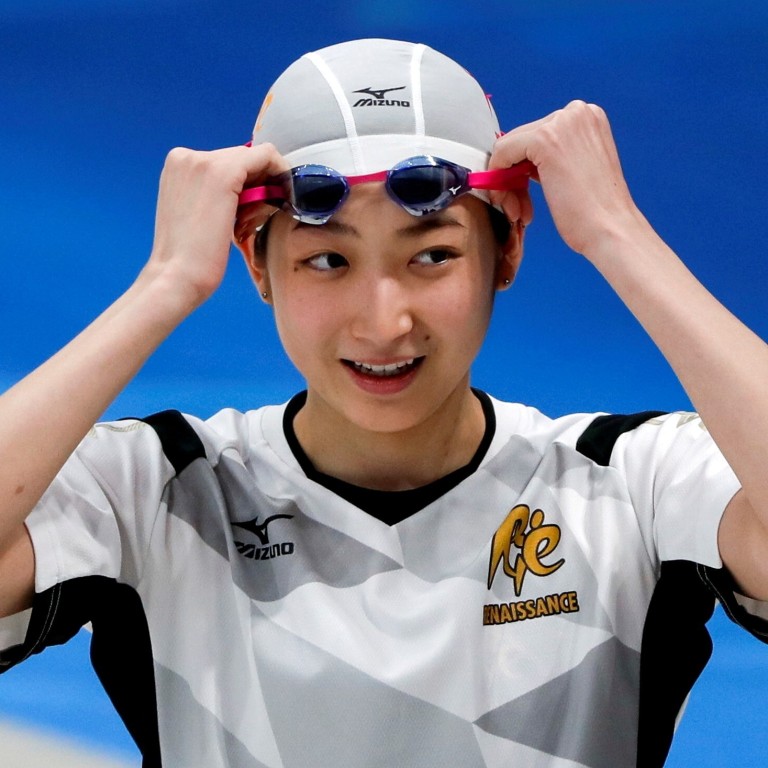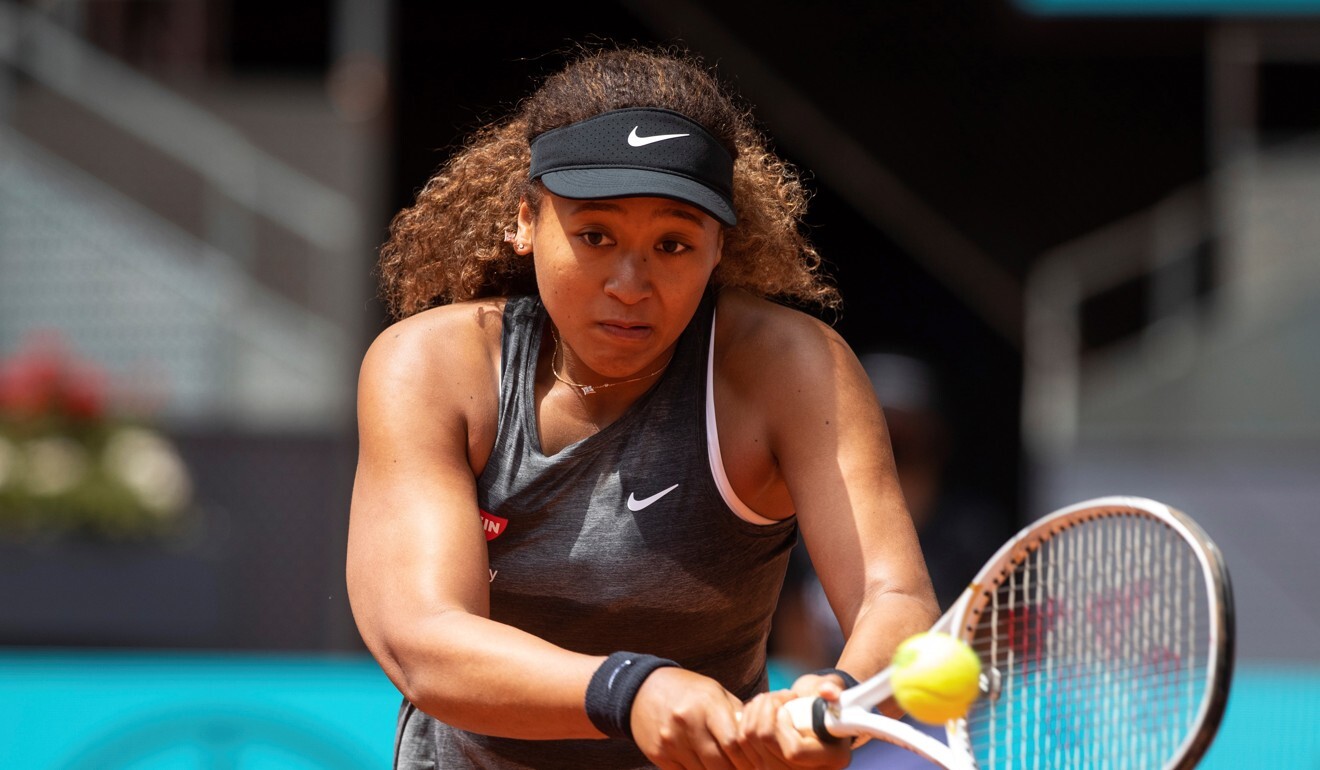
Tokyo Olympics: as Japan struggles to contain coronavirus, pressure builds on athletes to withdraw
- Swimmer Rikako Ikee, who qualified for the Japanese team two years after being diagnosed with leukaemia, addressed calls for her to quit over the weekend
- Support for the Olympics has been undermined by Japan’s slow vaccine roll-out and the fact that infection rates in Tokyo have not declined
Rikako Ikee became a national hero in Japan when she earned a place on the country’s Olympic swimming team two years after being diagnosed with leukaemia but the 20-year-old has come under mounting pressure to quit over coronavirus concerns.
In a Twitter post on the weekend, Ikee addressed calls for her to step down.
“We athletes have, of course, been working hard in order to take part in the Olympics, but I think it is natural that many are calling for the games to be cancelled due to the coronavirus pandemic,” she wrote.
“I share your desire to emerge from this darkness as quickly as possible, but to put that burden on the shoulders of athletes is very tough. Even if you want me to oppose the games, nothing that I say will change anything.”
Ikee also highlighted her particular health concerns.
“I have a chronic illness and, whether the games are held or not, I live every day with the anxiety [of being infected with the virus] and becoming seriously ill,” she wrote. “Myself and other athletes will accept what happens, whether the Olympics take place or not.”

“Of course I would say I want the Olympics to happen, because I’m an athlete and that’s sort of what I’ve been waiting for my entire life,” she said.
“But I think that there’s so much important stuff going on, and especially the past year. I think a lot of unexpected things have happened and if it’s putting people at risk and if it’s making people very uncomfortable, then it definitely should be a discussion.
“I feel like whatever makes everyone more comfortable and more safe. There’s going to be a lot of people entering the country, so they definitely have to make the right decisions on that. At the end of the day, you can’t force anyone to be vaccinated.”

Tokyo health officials confirmed more than 1,000 new infections on Saturday and Sunday. Experts have warned the majority of new infections are dangerous mutations of the virus, primarily the N501Y variant, first reported in the UK, although there have also been a number of cases of the South African and Indian variants.
Experts have also warned of a sharp increase in new cases in Tokyo. Many clinics were closed during the recent Golden Week holidays but health hotlines reported an increase in calls for advice. Calls were running at about 1,000 per day in February and March but peaked at 2,700 on Wednesday.
China’s Xi Jinping pledges support for Tokyo Olympics
In another alarming development, the health ministry on Sunday confirmed a record 1,144 people with the virus were in serious condition.
Japan has also lagged behind other advanced countries in its vaccine roll-out, with only 240,000 of its 36 million elderly citizens receiving the first of two shots by last Thursday, according to government data.
Japan on Monday took steps to accelerate this process and to distribute vaccines for the entire elderly population by the end of June. About 390 municipalities will launch the vaccination programme in a seven-day period from Monday, starting with about 120 local governments on the first day.
Nevertheless, the slow roll-out has added to the atmosphere of uncertainty regarding Japan’s preparedness to host the Olympics.

“I’ve never put [the] Olympics first,” he said. “My priority has been to protect the lives and health of the Japanese population. We must first prevent the spread of the virus.”
Also on Monday, International Olympic Committee (IOC) chief Thomas Bach was forced to postpone a visit to Japan “based on various situations including the extension of a virus state of emergency”.
Nine Japanese governors want option to scrap Olympic Games amid coronavirus surge
As of Monday morning, almost 316,000 people had signed a petition started by Kenji Utsunomiya, a Tokyo lawyer who has in the past run for the post of Tokyo governor, demanding the games be called off. The petition states that too many lives will be placed at risk, while medical facilities will be placed under even greater strain.
An opinion survey conducted on May 7-9 by the Yomiuri daily newspaper showed 59 per cent of respondents wanted the Olympics cancelled as opposed to 39 per cent who said they should be held. “Postponement” was not offered as an option. Another poll conducted at the weekend by TBS News found 65 per cent wanted the games cancelled or postponed again.
Even experts who were previously optimistic about the games going ahead appear to be having second thoughts.
Kazuhiro Tateda, president of the Japan Association of Infectious Diseases, on Monday said the government and IOC were “approaching the point of no return for a decision”.
“The big concern has to be the spread of the mutations, which are to blame for the sharp increase in cases in Tokyo, Osaka and other major urban areas,” he said, following a meeting of the advisory committee set up by the government.
“We are hopeful that cases may have peaked in Osaka but Tokyo is still struggling. Perhaps by the end of this week we will see the impact of the government’s state of emergency regulations, but we cannot be sure.
“The government has to make a final decision at the end of this month or in early June, and they have a few options. They could cancel the games, delay again or hold a ‘skeleton’ games of just a few events.
“It obviously depends on the situation in a few weeks’ time but … if we are in the same situation that we are experiencing today, then the government needs to cancel the games.”
Organisers have so far remained unmoved. IOC Vice-President John Coates on Saturday told reporters in Sydney the games would not be delayed or cancelled under any circumstances.
“The prime minister of Japan said that to the president of the United States two or three weeks ago,” Coates said. “He continues to say that to the IOC. We’re working with him on all of the safety measures. It’s going ahead.”
The IOC’s attitude was condemned as “arrogant” on social media in Japan, with one poster on the Japan Today website stating: “Nothing, nothing can stop the arrogance and selfishness displayed by those who still want the Olympics.”
Another message described the events as “a disaster in slow motion”. Another said: “The callousness of Coates is stunning. The IOC is putting money ahead of the safety of Tokyo residents.”
Additional reporting by Reuters, Agence France-Presse, Kyodo

